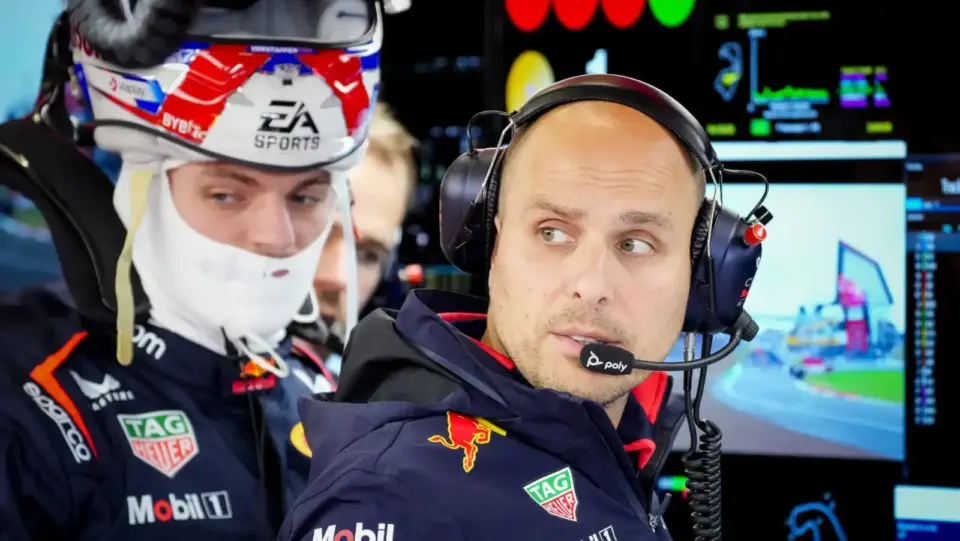Alpine is ramping up the speculation around its engine plans for the F1 2026 season. With new regulations looming, whispers suggest a shift in power unit strategy. Bruno Famin, the Alpine boss, hints at a departure from Renault engines. Exciting times are ahead for the racing team.
During a media session before the Belgian Grand Prix, Famin dropped some significant hints. There’s talk of Alpine considering prominent customer engines. The atmosphere is charged with anticipation. Famin’s words have set off a wave of curiosity among fans and experts alike.
Mixing Things Up for 2026
Alpine is stirring the pot with its plans for 2026. Rumors indicate Renault might stop producing its Formula 1 power units. The move would push Alpine to look elsewhere. Famin mentioned collaborating with top manufacturers. He suggests a keen interest in Ferrari or Mercedes engines. This change could redefine Alpine’s trajectory in the sport.
Alpine’s Strategic Vision
Famin’s insights have sparked discussions on Alpine’s future vision. Will they go with a proven powerhouse like Ferrari or Mercedes? This decision isn’t just about engines; it’s about brand evolution. The focus is on enhancing global brand visibility through F1.
For Alpine, Formula 1 isn’t merely a racing venture. Famin believes it’s a key strategy for brand growth. Alpine is leveraging motorsport to boost its global presence. It underlines the significance of choosing the right engine partner.
Challenges and Concerns
The transition comes with its own challenges. Famin openly acknowledged the intricacies involved in pivoting from Renault units.
There’s an ongoing debate about the workforce implications. French labor unions are closely monitoring the situation. Famin assured that no employee would face job cuts. He emphasized retaining the workforce in various roles. It’s a critical aspect in ensuring a smooth transition.
Despite the reassurances, tensions linger. Change in core operations brings uncertainties. The workforce’s adaptability and Alpine’s management capabilities will be tested.
Potential Partners in Focus
Famin’s comments have narrowed down potential engine partners. Ferrari and Mercedes are top contenders. Their engines are known for efficiency and reliability.
The talk about engine integration and packaging is crucial. Famin assures that partners have optimized solutions. This efficiency could offer Alpine competitive advantages. It’s a strategic move aimed at staying ahead of the curve.
Selecting the right engine partner is essential. Famin’s confidence in potential partners highlights their operational excellence. It’s a calculated bet on a tried-and-tested formula.
Labor Union Dynamics
The shift away from Renault units involves retaining the current workforce. Famin intends to minimize any negative impact. Addressing labor union concerns is paramount in this transition.
Employees will be offered roles within the organization. Famin’s assurance aims to calm staff anxieties. It signals Alpine’s commitment to its team’s welfare.
This transition phase is critical. Famin’s strategy focuses on a seamless shift without staffing disruptions. It underscores Alpine’s dedication to its workforce.
The Broader Impact
Alpine’s potential engine swap isn’t just an internal affair. It could reshape team strategies across Formula 1. Competitors will be watching closely. They will gauge how this revamp affects Alpine’s performance.
Decisions like these set precedents in F1. They can influence how teams approach engine partnerships. Alpine is at the forefront of a potential strategic shift. This bold move could redefine competitive dynamics.
The ripple effects could extend beyond Alpine. F1’s landscape might see new alliances and rivalries. Engine partnerships have far-reaching effects on race outcomes.
Future-Proofing with Innovation
Alpine aims to stay competitive through innovation. Opting for top-engine suppliers aligns with this goal. It sets the stage for enhanced performance in the 2026 season.
Alpine seeks to future-proof its brand through strategic decisions. Famin’s focus is not solely on today’s challenges. It’s about preparing for future success and sustainability.
This forward-thinking approach is integral to Alpine’s strategy. The quest for innovation is relentless. F1 continues to be the ultimate testing ground for automotive excellence.
Inside the Engine Talks
The discussions around Alpine’s engine plans are gaining traction. Famin has sparked interest across the F1 community. The choice between Ferrari and Mercedes engines is a hot topic.
Famin’s candidness about engine partnerships is refreshing. His approach keeps stakeholders informed and engaged. Alpine’s transparency in its decision-making is commendable.
The significance of these engine talks is undeniable. It’s a pivotal part of Alpine’s future plans. The outcome could define the team’s competitiveness in coming seasons.
What’s Next for Alpine?
As Alpine navigates these engine decisions, what’s next remains a question. Famin’s strategic hints have left the F1 community abuzz. The team’s direction will unfold in the coming months.
The path Alpine chooses will have lasting effects. Famin’s leadership is crucial in executing this transition. It’s an exciting era for Alpine as they pave their way forward.
Alpine’s journey to 2026 is a significant one. Their decision on engine partners will shape their racing future. Excitement and anticipation are in the air.










